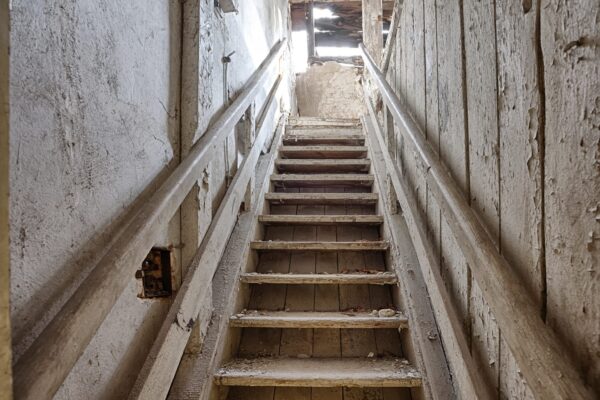
Hardy, Wolf & Downing recently recovered a large premises liability settlement, despite all odds stacked against the Maine resident. Negotiations were fraught with detrimental admissions, difficult witnesses, and risky legal theory, but our experienced legal team was able to secure $220,000 for a woman who injured herself twice on her landlord’s stairs.
Though the insurance company denied both claims, our resolve never wavered and we pursued every legal course of action until the plaintiff was compensated. “This was actually a life-altering event for the client,” said attorney Sheldon J. Tepler, who presided over the case. “We are pleased with the result of this case and are happy to provide Doreen with some closure to get past these devastating injuries she’s suffered.”
The facts
Plaintiff “Doreen M.” moved into her brother’s 100-year-old, three-unit apartment in March 2011. Roughly 16 months later, on July 8, 2012, the plaintiff was taking out the trash when she missed the second step and fell forward down the stairs. Two months later, on August 29th, the plaintiff lost her balance at the top of the stairs and tumbled down again.
Prior to the initial accident, the landlord’s son admitted that he took down an old deck and put in the steps leading to the plaintiff’s apartment. He admitted that the new steps did not meet local building code requirements. This fact was verified by testimony from a home inspector, as well as a file drawn up by a code enforcement officer with the City of Westbrook.
According to the home inspector, the top landing was too small, the handrail bolted to the side of the structure did not meet code requirements for graspability, and the bottom stair was not secured to the balance of the stairs. Following the first incident, the Maine property owner added a foot to the landing and made the step wider to comply with code, but failed to connect the stairs properly, which made the stairs even more difficult to navigate.
Plaintiff suffered serious injuries
Doreen M. was treated at Maine Medical Center for a number of fractured ribs, a broken right arm, and a broken femur resulting from her first fall. She spent five days in the hospital and was then transferred to The Cedars facility for a few weeks of occupational rehabilitation. According to the attending therapist, the plaintiff suffered tremendous fear and anxiety about going down the stairs following her injury.
She was subsequently hospitalized with a deep gash over her eye, a tibial plateau fracture and a right inter trochanteric hip fracture after her second fall. Surgery was done at the Maine Medical Center to repair damage to the right femur and right tibia. Physical and occupational therapy was needed from September 4th to October 10th, 2012. She continued to receive in-home nursing care and rehabilitation for two months. The plaintiff attended sessions at Southern Maine Physical Therapy for just over a year.
The total cost of her injuries amounted to nearly $170,000.
Liability denied
Though she never confronted the landlords about the condition of the steps, the plaintiff filed two complaints with their insurance company to no avail, forcing her to file a premises liability lawsuit in hopes of covering her medical expenses. Though our client’s injuries were plain, the case was fraught with complications.
In the state of Maine, apartment units are generally “rented as is,” with the tenant accepting the property for better or worse.
Landlords may only be found liable for injury if:
- The landlord fails to disclose the existence of a defect which he or she knew existed.
- The landlord gratuitously undertakes repairs and does so negligently.
- The landlord expressly agreed to maintain the premises in good repair.
- The landlord fails to maintain common areas of the building where they are deemed to have sole control.
The defense counsel’s own witness testimony provided by the landlord’s son confirms that, indeed, reckless repair work had been done that likely led to the plaintiff’s trip and fall and subsequent injuries. Defense attorneys argued that testimony provided by the plaintiff’s brother was erroneous and that she was at “a high fall risk” at the time of her accidents.
Despite such arguments, the slightly unfavorable factual background, and other challenges, mediation was successful and Doreen M. was able to recover significant compensation in the end and move on with her life.

